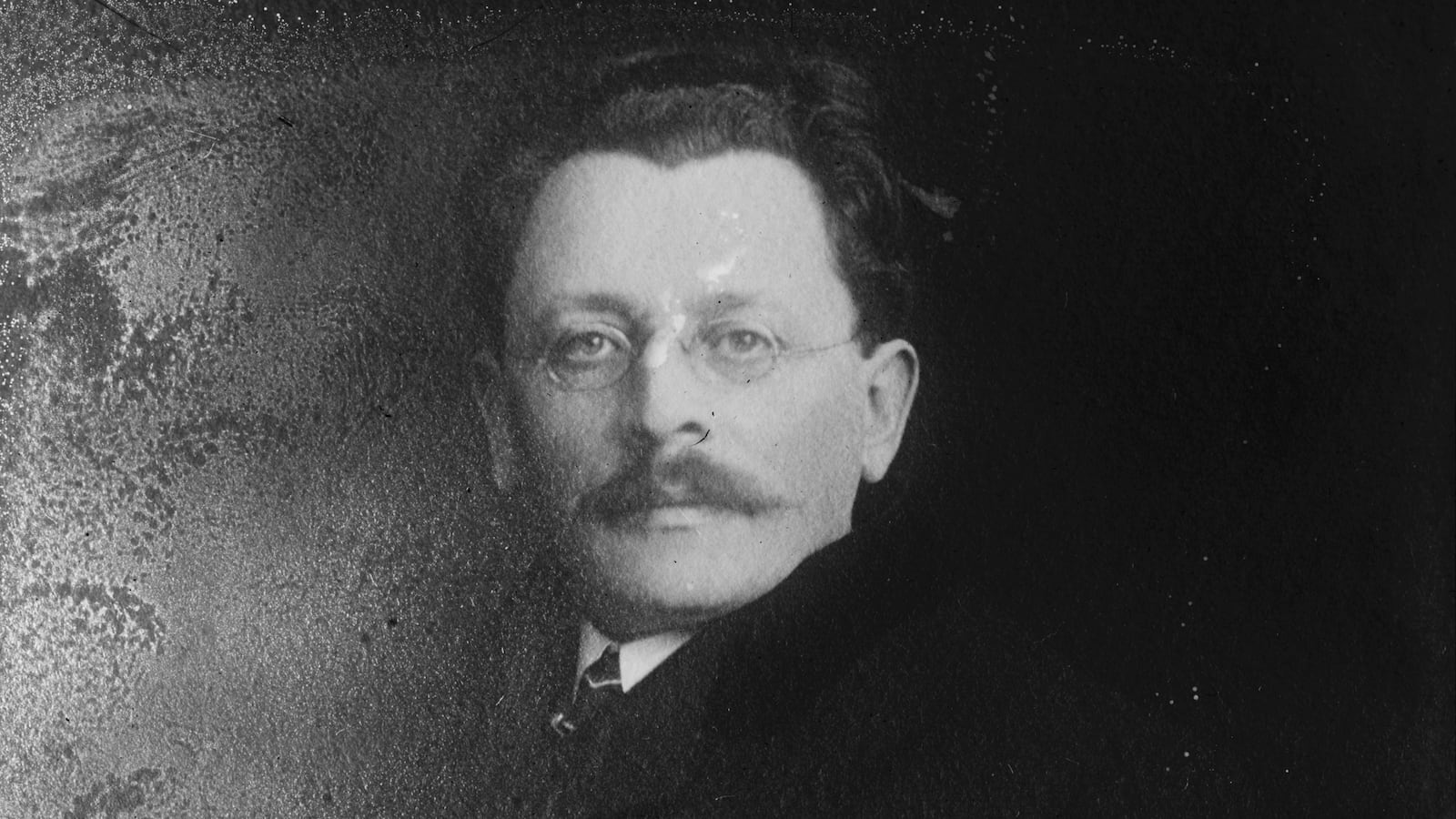At a time when too many biographers chronicle their subjects’ lives in excessive detail, producing massive, meandering volumes that can usefully double as doorstoppers, it’s a pleasure to read Seth Lipsky’s brisk, cogent book. Lipsky paints in broad strokes, passing swiftly through the decades as he focuses on the significance of Abraham Cahan’s work at the Forward, the legendary Yiddish-language daily that he led for half a century. Unabashedly based on secondary sources, most long out of print, The Rise of Abraham Cahan provides a welcome opportunity for a new generation to discover this titanic figure in 20th-century journalism.

As editor of the Forward, Cahan wanted to create, in Lipsky’s nicely phrased description, “a freewheeling press that would reflect the richness and complexities of life on the Lower East Side.” He was, like most of his readers, a recent arrival to the United States who was trying to figure out how he could find his place in American society while retaining a Jewish identity. Although a convinced socialist at the time the newspaper was founded in 1897, Cahan resisted attempts to make the Forward a forum for factional squabbling (though he was happy to pursue personal vendettas). He adopted the techniques of yellow journalism—sensational headlines, human interest stories, illustrations—and kept the paper’s language folksy and colloquial to draw his readers into its more serious literary and political material. “Jewish in WORD—American in THOUGHT” was the Forward’s motto as it reached the height of its influence in the early 1920s, when circulation peaked at nearly 250,000. Lipsky, himself a longtime newspaperman (and founding editor of the Forward’s English-language edition), is at his best recreating the vibrant panache with which Cahan and the Forward spoke to and for the immigrants flooding into America during the decades around the turn of the 20th century.
He also writes well about Cahan’s brief career as a fiction writer, launched with short stories that won him the praise of William Dean Howells, a champion of American literary realism. Encouraged to hope that his portraits of Jewish life on the Lower East Side “would have an American readership far beyond the world in which they were set,” Cahan went on to write two novels. The second, The Rise of David Levinsky, was warmly received in 1917 and is still considered a classic account of the immigrant experience. Yet after that Cahan published no further fiction; “the Forward was becoming his great American Jewish novel,” Lipsky shrewdly comments.
Lipsky’s assessment of Cahan’s political positions is more problematic. Born in Lithuania in 1860, Cahan seesawed in childhood between his parents’ piety and secular appeal of the Jewish enlightenment movement known as the Haskala. Secularism won the day in 1875, when he emerged from months of voracious reading at the Vilna Public Library declaring, “There was no God!” He joined the revolutionary underground and fled for America, one step ahead of the czarist police, in 1882. In the United States, he moved steadily toward the more pragmatic wing of socialism while maintaining militant support for organized labor. He believed Jewish immigrants could improve their lot by fighting for better conditions in the United States, not by heeding the call of Zionist leader Theodore Herzl to make a new life in Palestine.

He changed his mind about Zionism, but not in precisely the ways Lipsky strains to suggest. “I am still not a Zionist,” Cahan wrote after returning from Palestine in 1925, “but my feelings have changed, positively, toward the socialist segment of the Zionist movement.” This is hardly the “rare admission of error” Lipsky claims. Yes, Cahan condemned the 1929 Arab massacre of Jews in Hebron (excused by communists as an anti-imperialist uprising); of course the Forward denounced Hitler’s rise and “reported on the annihilation of Europe’s Jews in greater detail than other newspapers.” However, Lipsky’s claim that Cahan “confounded a left that was emerging in league with the enemies of Israel” is an overstatement of his complicated views on Jewish nationalism, particularly since as late as 1940 Cahan scoffed at the notion of millions of Jews leaving Europe to settle in Palestine.
Lipsky, a founding editor of the conservative New York Sun, also shoehorns his own political agenda into his coverage of Cahan’s evolution from revolutionary socialist to social democrat. Initially thrilled by the Russian Revolution, Cahan was speedily disenchanted. “Russia has at present less freedom than it had in the earliest days of Romanov rule,” he declared in 1923. The Forward was a staunch ally of organized labor’s battle against communist control of American trade unions, and it published scathing reports on the Soviet Union’s Siberian prison camps and the mass starvation that resulted from Stalin’s forced collectivization program. But again, this hardly justifies Lipsky’s jaw-dropping assertion that Cahan’s staunch anticommunism “would not be fully vindicated until 1989, nearly forty years after Cahan’s death, when the Soviet Union finally collapsed in the face of a three-pronged strategy led by President Ronald Reagan, Pope John Paul II, and Lane Kirkland of the AFL-CIO.”
The Rise of Abraham Cahan is a valuable book nonetheless, because Lipsky is too good a journalist not to report Cahan’s positions accurately, even when he is interpreting them bizarrely. It’s an impressive feat for a writer whose political heroes include Margaret Thatcher and the aforementioned Ronald Reagan to vividly recreate a contentious milieu in which being a conservative meant voting for Franklin Roosevelt. It’s regrettable, then, that Lipsky seizes every opportunity to extrapolate from Cahan’s slowly changing opinions, which remained grounded in a bedrock commitment to social democracy, to heavily imply that his subject would inevitably have arrived at the brand of 21st-century conservatism practiced by Lipsky himself. Since Cahan died in 1951, that implication remains as hypothetical as many of the other exaggerated statements in this fascinating but frequently infuriating book.




